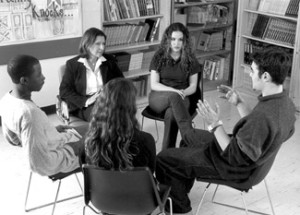- Calls to this hotline are currently being directed to Within Health, Fay or Eating Disorder Solutions
- Representatives are standing by 24/7 to help answer your questions
- All calls are confidential and HIPAA compliant
- There is no obligation or cost to call
- Eating Disorder Hope does not receive any commissions or fees dependent upon which provider you select
- Additional treatment providers are located on our directory or samhsa.gov
Finding a Support Group During the Holiday Season
Contributor: Courtney Howard, BA, writer for Eating Disorder Hope
Support groups can provide great comfort to those in recovery from mental health issues, substance abuse, grief, and more.
to those in recovery from mental health issues, substance abuse, grief, and more.
They can be especially helpful for those in recovery from an eating disorder during the holidays, when seasonal stressors might make past disordered thoughts and behaviors creep back up.
Traditional eating disorder support groups
Many eating disorder support groups nationwide hold regular meetings to help those coping with disordered eating and related behaviors. Meetings during the holidays typically focus on season-specific triggers, giving participants an opportunity to voice their concerns regarding relapse and explore alternative coping mechanisms.
In addition to seeking guidance for their own issues, individuals can help other attendees who might be grappling with similar demons by providing a safe space and an ear to listen.
Many find connecting in a group setting with those who understand the struggle to be comforting and empowering. Individuals in recovery who regularly attend meetings throughout the year are encouraged to continue doing so during the holiday season to ensure that recovery remains a priority.
Anyone can research for a local group on the National Eating Disorder Association (NEDA) website or get a referral from a therapist or other professional in the field. The National Association of Anorexia Nervosa and Associated Disorders (ANAD) has chapters throughout the country, with meetings facilitated by mental health professionals or advocates within the eating disorder community.
Alumni groups
 Most treatment centers provide some sort of alumni services and outreach post-discharge, typically including support groups. These can give individuals an opportunity to reconnect with past support people, whether this means the professional leading the group, friends from treatment, or both.
Most treatment centers provide some sort of alumni services and outreach post-discharge, typically including support groups. These can give individuals an opportunity to reconnect with past support people, whether this means the professional leading the group, friends from treatment, or both.
During the holidays, schedules might be different, so those interested in attending are encouraged to double-check with the treatment center in question. Most facilities have an open door policy that welcomes alumni regardless of how long ago they were in treatment.
Supportive online communities
It is no secret that the Internet can be a dark place for someone in the throes of an eating disorder. With a disturbing amount of “thinspo” and “pro-ana” blogs and forums that boast tips on how to maintain eating disorders, the Internet can promote disordered behaviors and distorted body image. However, there are also online communities that provide support for recovery.
NEDA and ANAD both have online forums that give users the opportunity to speak about their struggles in recovery. These chats are monitored to ensure that triggering language is not used (i.e. specific weight or calories consumed), similar to in-person groups. There are also smaller online communities, though they vary greatly and are often not monitored by a professional.
Online support groups can provide immediate help for those facing eating disorder triggers during the holiday season. Someone can jump on his or her smartphone and receive support and guidance from others within the community within minutes. This is especially beneficial for those who might not have support people with them during the holidays.
12-step programs
 The original 12-step program was developed for Alcoholics Anonymous but is applicable to many mental health disorders and addictions. Eating Disorders Anonymous (EDA), Overeaters Anonymous, and Anorexics and Bulimics Anonymous (ABA) all follow the 12-step model and are highly effective for some individuals facing eating disorders.
The original 12-step program was developed for Alcoholics Anonymous but is applicable to many mental health disorders and addictions. Eating Disorders Anonymous (EDA), Overeaters Anonymous, and Anorexics and Bulimics Anonymous (ABA) all follow the 12-step model and are highly effective for some individuals facing eating disorders.
Not everyone responds to this style of treatment or recovery maintenance, but it is often helpful and can connect individuals with others within the community.
Family and friends as support
If a support group is unavailable during the holiday season, it is often best to lean on loved ones. This is dependent on each individual, but family and friends can offer a different kind of support and guidance than strangers or acquaintances in support groups.
Both forms of insight serve important purposes. Loved ones typically know the individual better than anyone and can provide unique comfort to help him or her cope with stressors during the holidays.
Though Christmas dinner might come with a side of triggers, support groups can make stress more manageable while curbing disordered thoughts and behaviors.
Traditional support groups, alumni groups at treatment centers, online communities, and loved ones can all provide different levels of support for those in battle with their eating disorder voice this holiday season.
Community Discussion – Share your thoughts here!
What has been your experience with disordered eating support groups during the holidays? How has attending helped you in your recovery?
 About the author: Courtney Howard is a Certified Life Coach specializing in eating disorders through Lionheart Eating Disorder Recovery Coaching. As a content writer at the Sovereign Health Group while writing freelance through Eating Disorder Hope, Courtney is a passionate advocate for recovery and works to fight the stigma surrounding all mental health disorders. She graduated summa cum laude with a Bachelor of Arts (B.A.) from San Diego State University, holds a paralegal certificate in Family Law, and is a Certified Domestic Violence Advocate.
About the author: Courtney Howard is a Certified Life Coach specializing in eating disorders through Lionheart Eating Disorder Recovery Coaching. As a content writer at the Sovereign Health Group while writing freelance through Eating Disorder Hope, Courtney is a passionate advocate for recovery and works to fight the stigma surrounding all mental health disorders. She graduated summa cum laude with a Bachelor of Arts (B.A.) from San Diego State University, holds a paralegal certificate in Family Law, and is a Certified Domestic Violence Advocate.
The opinions and views of our guest contributors are shared to provide a broad perspective of addictions. These are not necessarily the views of Addiction Hope, but an effort to offer discussion of various issues by different concerned individuals.
We at Addiction Hope understand that addictions result from a combination of environmental and genetic factors. If you or a loved one are suffering from an addiction, please know that there is hope for you, and seek immediate professional help.
Last Updated & Reviewed By: Jacquelyn Ekern, MS, LPC on November 24, 2015
Published on AddictionHope.com

